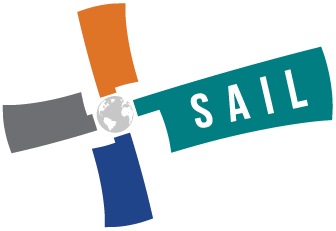
What the SAIL platform has to offer
Knowledge plays an important role in shaping inclusive sustainable societies. In the present era of globalisation, the opportunities for developing countries and emerging economies to strengthen their own knowledge infrastructure are increasingly influenced by international trends and developments. For example, international agreements on trade and investment, but also on e.g. labour rights and environmental protection, shape the extent to which Global South governments can regulate local industries. Development assistance from industrialised countries and international organisations, such as the World Bank, the UN and the OECD, often include funds earmarked for stimulating sustainable development but have a tendency to look for quick wins. The capacity to implement constructive and sustainable development strategies is weakening because the global challenges we face are becoming increasingly complex and viable pathways to solutions are becoming ever more uncertain. This is why the SAIL institutes take a long-term, research-based perspective with the aim of facilitating truly sustainable development in an inclusive manner with a focus on the capacity to implement at its heart.
Knowledge infrastructure is crucial to the process of building inclusive societies. The presence of a robust knowledge infrastructure increases the likelihood of inclusive, equitable and sustainable development. The knowledge institutes of today are often the starting point of the leaders of tomorrow. They contribute by providing policy expertise to the government and also to the NGO sector, but they also supply expertise to existing and upcoming private sector actors. In addition, local knowledge institutions grounded in their own society clearly understand their own context far better than any outside actors could hope to do.
While the necessity of knowledge for promoting equitable growth, or for exploring the possibilities of a degrowth option, is largely uncontested, its role in furthering sustainability is less widely espoused. In the current global context, it is vital to have a good understanding of the conditions for development, the impact of globalisation on developing countries, and the way in which governments – both from countries in the Global South and in the Global North – can construct strategies likely to be conducive to local development. Knowledge of these processes is often scattered, as is the expertise on both the strategies and structures of the key actors involved. As a result, knowledge is also scattered on how these strategies affect government interactions with the private sector, international organisations, CSOs, citizens and other stakeholders, both locally and internationally. It is precisely in this Triple Helix (interactions between universities, industry and government) and Dutch Diamond (interactions between universities, industry, CSOs, financial institutions and government) context, that SAIL has extensive knowledge and experience.
Given the complementarity of the SAIL members’ expertise, the purpose of the SAIL platform is to contribute integrated expertise to Ministries, CSOs, private sector actors and others, in addition to collaborating and exchanging knowledge and expertise among its members. Collectively, the SAIL institutes cover many different developmental domains and can offer expertise on the entire SDG spectrum. As an interdisciplinary forum for exchange and collaboration on current global issues, SAIL can enrich the debate about finding solutions to the challenges outlined in the SDGs both in the Netherlands and through its work in both the Global South and the Global North, by offering new perspectives and fresh ideas on how to tackle the complex problems the world faces.
Since the inception of the SAIL platform, senior representatives have regularly gathered to discuss educational, research and capacity-building issues. Given its long-standing experience (over six decades) in research, education and capacity building, the SAIL platform endeavours to contribute to the crafting of sound development policies.
The SAIL platform is eager to engage with universities, industry, CSOs, financial institutions and government. SAIL can provide the knowledge base for projects and collaborations, as well as an extensive network of alumni. SAIL also aims to develop and acquire funding for joint research projects, pooling expertise across its membership and augmenting the knowledge base on development issues. As a result of the integration of the majority of the SAIL institutes into Dutch universities over the past decade, the connections between Dutch academia and development cooperation have been strengthened. The SAIL platform enjoys a fruitful collaboration with the Dutch ministries in relation to policy formulation regarding inclusive sustainable development and hopes to further strengthen these links in the years to come. SAIL sees the importance of protecting and building on the longstanding reputation of The Netherlands as an innovative leader in the field. Ensuring that the Dutch knowledge institutes are in a position to continue their cutting-edge work in this respect is a way of ensuring that the body of knowledge built over many decades is retained and further enhanced.
Image: copyright © Royal Tropical Institute
